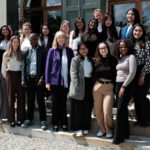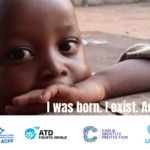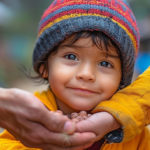
WEBINAR SERIES: Right to identity and access to justice
OVERVIEW
The Identity Rights Working Group, co-chaired by CHIP and the ISI is hosting a webinar series dedicated to access to justice and effective remedies for children whose identity rights have been contravened. It is a follow-up of the expert meeting that brought together several members of the CRC Committee, representatives of UN agencies, non-governmental organizations, academics and persons with lived experience.[1]
The central focus of the series will be to explore the various challenges that arise when Articles 7 and 8 of the CRC are violated and the consequences for access to justice. The child’s right to identity is an independent right and is also the gateway for accessing other rights, such as education and healthcare. When children lack some or all elements of their identity, they are rendered legally invisible making them susceptible to severe forms of human rights violations and unable to enjoy basic rights. Relatedly, their ability to access justice and remedies is severely undermined, because their ‘lack of (legal) existence’ makes it impossible from them to establish legal personality, a basic concept that underscores access to justice.
Four webinars each lasting 90 minutes will be held, mirroring the structure of the expert meeting with same themes and speakers, where possible. A fantastic line-up of leading experts in this field will be providing information, with each session being concluded by a member of the CRC Committee. Speaker bios are being updated on the webpage dedicated to the series as they come in.
El Grupo de Trabajo sobre Derechos a la Identidad, copresidido por CHIP y el ISI, organiza una serie de seminarios web dedicados al acceso a la justicia y los recursos efectivos para los niños y niñas cuyos derechos de identidad han sido vulnerados. Se trata de dar continuidad a la reunión de expertas y expertos que congregó a varios miembros del Comité de los Derechos del Niño, representantes de organismos de las Naciones Unidas, organizaciones no gubernamentales, académicos y personas con experiencia propia.
El eje central de la serie será explorar los diversos retos que surgen cuando se vulneran los artículos 7 y 8 de la CDN y las consecuencias para el acceso a la justicia. El derecho de los niños y niñas a la identidad es un derecho independiente y es también la puerta de acceso a otros derechos, como la educación y la atención en salud. Cuando los niños y niñas carecen de algunos o de todos los elementos de su identidad, se vuelven legalmente invisibles, lo cual los hace susceptibles de sufrir graves formas de violación de sus derechos humanos y de no poder disfrutar de derechos básicos. En relación con esto, su capacidad para acceder a la justicia y a los recursos se ve gravemente socavada, porque su falta de existencia (legal) les impide establecer su personalidad jurídica, un concepto básico que subraya el acceso a la justicia.
Se celebrarán cuatro seminarios web de 90 minutos de duración cada uno, que reflejarán la estructura de la reunión de expertas y expertos con los mismos temas, en la medida de lo posible. Un fantástico elenco de destacados expertas y expertos en este campo ofrecerá información, y cada sesión concluirá con la intervención de un miembro del Comité de la CDN. Las biografías de los ponentes se irán actualizando en la página web dedicada a la serie a medida que se vayan recibiendo.
Le groupe de travail sur le droit à l’identité, coprésidé par CHIP et ISI, organise une série de webinaires consacrés à l’accès à la justice et aux recours efficaces pour les enfants dont le droit à l’identité a été bafoué. Il s’agit d’un suivi de la réunion d’experts qui a rassemblé plusieurs membres du Comité des droits de l’enfant, des représentants d’agences des Nations unies, d’organisations non gouvernementales, d’universitaires et de personnes ayant une expérience vécue[1]
L’objectif principal de cette série sera d’examiner les différents défis qui se posent lorsque les articles 7 et 8 CDE sont violés et les conséquences pour l’accès à la justice. Le droit de l’enfant à l’identité est un droit indépendant et constitue également la porte d’accès à d’autres droits, tels que l’éducation et la santé. Lorsque les enfants sont dépourvus d’une partie ou de la totalité des éléments de leur identité, ils deviennent juridiquement invisibles, ce qui les expose à des formes graves de violations des droits de l’homme et les empêche de jouir de droits fondamentaux. De même, leur capacité à accéder à la justice et aux voies de recours est gravement compromise, car leur « absence d’existence (juridique) » les empêche d’établir leur personnalité juridique, un concept fondamental qui sous-tend l’accès à la justice.
Quatre webinaires, d’une durée de 90 minutes chacun, auront lieu, reflétant la structure de la réunion d’experts avec, dans la mesure du possible, les mêmes thèmes. Des experts de premier plan dans ce domaine fourniront des informations, chaque session étant conclue par un membre du comité des droits de l’enfant. Les biographies des intervenants seront mises à jour au fur et à mesure sur la page internet consacrée à la série.
RECORDINGS
PRESENTATIONS
Aleksandra Semeriak
European Network on Statelessness
Armando Cupi
Unione Italiana Apolidi
Karina Ambartsoumian-Clough
United Statelesss
Professor Elizabeth Aguiling-Pangalangan
Institute of Human Rights, Law Center University of the Philippines
Natalie Lewis
Queensland Commissioner for Children
Arthur & Audrey Kermalvezen
Origines Association
SPEAKERS
WEBINAR 1 | 14th November 2024
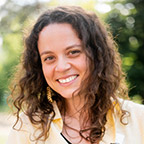
Valeriia Cherednichenko
UNHCR (Moderator)
Valeriia Cherednichenko, originally from Kyiv, Ukraine, has been working on issues related to statelessness since 2011. She joined UNHCR in 2014 and currently serves as a Statelessness Officer in the Statelessness Section, Division of International Protection, UNHCR. Valeriia holds a Master’s degree in International Law from the Institute of International Relations at Kyiv National Taras Shevchenko University (Ukraine) and an LLM in Human Rights from Tilburg University (the Netherlands). She previously worked for seven years at the UNHCR Regional Bureau for Europe, initially as an Associate Protection Officer and later as a Protection Officer, where she led strategic efforts on statelessness across 49 countries in Europe. Since 2017, Valeriia has also been a guest trainer on statelessness at the Sanremo International Institute of Humanitarian Law.
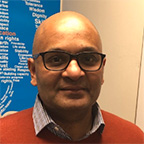
Bhaskar Mishra
UNICEF
Bhaskar Mishra works as the Civil Registration and Vital Statistics and Legal Identity Specialist with UNICEF HQ, New York. He also supports UNICEF’s work on the UN Legal Identity Agenda. From 2016 to 2021, Bhaskar worked with the UNICEF Tanzania CO as the Child Protection Specialist for Birth & Death Registration, supporting the Government of Tanzania in scaling up the simplified birth and death registration system. Previously, Bhaskar worked as the Deputy Registrar General responsible for implementing India’s birth and death registration system.

Terry Kiairie
ATD 4th World
Terry Kiarie is a dedicated young lawyer and certified child protection officer with extensive experience in advocating for children’s rights and safety. She is currently working at ATD Fourth World, an international nonprofit organization that has been actively involved in various community programs aimed at improving the lives of children. Terry Kiarie worked with children in Kibera slums in Kenya for several years. She is in an Advocacy group together with other young volunteers of ATD FW from Tanzania, DRC, Burkina Faso, central Africa, Cameroon, and Senegal who have been working closely with children and their families especially those from impoverished neighborhoods both in urban and rural setting advocating on children rights including the right to Birth cerficates. Her passion lies in ensuring the well-being and protection of vulnerable children and youth. she is committed to making an impact in their lives through legal advocacy and community engagement.
Terry is focused on bringing forward the voices of children and families living in extreme poverty who are often forgotten and miss enjoying their basic human rights such as access to justice. Through the legal rights advocacy, championing administration processes, removing barriers in accessing birth certificates, conducting case studies and consulting on good.
Terry is currently working as an advocacy officer at the ATD FW international advocacy office at its headquarters in Paris
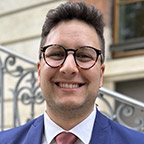
Armando Augello Cupi
Unione Italiana Apolidi
Armando Augello Cupi is a stateless young professional with a good knowledge experience in the governance management of NGOs and with a strong expertise on humanitarian crises, conflict management and statelessness. Armando has an advanced master’s degree in Conflict Management and Humanitarian Action and a bachelor’s degree in Global Humanities. He pursed an Internship as Researcher at Princeton University investigating about on-going situation in Myanmar with the possibility to interview several Rohingya’s people. In 2022, Armando created the first stateless-led organization based in Italy, named Unione Italiana Apolidi (Italian Stateless Union), which provide legal support to stateless and stateless refugees. In addition to this, UNIA provides information and awareness campaign regarding statelessness and activities of capacity building dedicated to stateless individuals and students. At the moment Armando is working as Associative Coordination Intern at Doctors Without Borders.
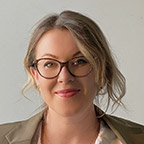
Aleksandra Semeriak
European Network on Statelessness
Aleksandra Semeriak Gavrilenok, graduated in Political Science and with a master’s degree in Migration Studies from the Pompeu Fabra University in Barcelona, has developed her professional career in the non-profit sector, working on asylum, statelessness, migration, and human rights. She serves as European Network on Statelessness Trustee and Secretary of the Board of Directors of the United Nations Association of Spain. She is an Associate Lecturer at Esade Ramon Llull University and currently manages an AMIF-funded project on complementary pathways for persons in need of international protection at the Catalan Fund for Development Cooperation.
Aleksandra was born in Latvia and grew up as a stateless person in Spain. Her personal experience and professional expertise motivated her to actively contribute to awareness raising, advocacy, capacity building and community engagement activities on statelessness in Europe and Spain, in collaboration with the European Network on Statelessness and as a member of the stateless-led organisations Apatride Network and Statefree e.V..
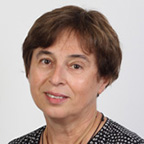
Velina Todorova
CRC Committee member
Velina Todorova is a Bulgarian lawyer (1981) and Ph.D. in Sociology of Law (1989), Associate Professor on Civil and Family Law at the Law Faculty, Plovdiv University and Bulgarian Academy of Sciences. She has an extensive experience in research and in law making in the areas of child rights protection, social protection and family law (1997 to date). Publishes nationally and internationally and is both expert (2001) and a member (2014-2019) to the Commission on the European Family Law. Member to the European Family Law Academic Network (FLEUR) since 2019. A founder of the Governmental Agency for Child Protection (2001). She has always combined her academic career with a strong activism as a member and supporter of various human rights initiatives and NGOs. A Deputy Minister of Justice (2011-13). Member to the UN Committee on the Rights of the Child (2017-2021, 2021-2025).
WEBINAR 2 | 3rd December 2024
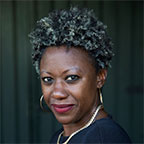
Deneisha Moss
ISI (Moderator)
Deneisha Moss is the Programme Lead for ISI Children’s Programme where she holds responsibility for coordinating activities and implementing initiatives that focus on addressing childhood statelessness. She also supports other ISI programmes including the Discrimination Programme, Deprivation of Nationality and Capacity Building and Resource Development. Deneisha is based out of the Tilburg Office. Prior to joining ISI, Deneisha spent more than 12 years in the humanitarian sector where she worked with the UN Refugee Agency predominantly in Southeast Asia and the Americas. There, she specialised in refugee protection, with an emphasis on child protection and statelessness. Deneisha is a non-practising Barrister, admitted to the Bar of England and Wales (2002), The Bahamas (2002), Turks and Caicos Islands (2006). She holds a Bachelor of Laws degree from the University of Leeds in England, and a Master of Laws in International Human Rights and Humanitarian Law from the University of Lund in Sweden.

Bhaskar Mishra
UNICEF
Bhaskar Mishra works as the Civil Registration and Vital Statistics and Legal Identity Specialist with UNICEF HQ, New York. He also supports UNICEF’s work on the UN Legal Identity Agenda. From 2016 to 2021, Bhaskar worked with the UNICEF Tanzania CO as the Child Protection Specialist for Birth & Death Registration, supporting the Government of Tanzania in scaling up the simplified birth and death registration system. Previously, Bhaskar worked as the Deputy Registrar General responsible for implementing India’s birth and death registration system.
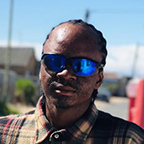
Manito Kayembe
Scalabrini Centre, Centre for Child Law
Manito kayembe is a 25 year old stateless young man born in 1999 / 09 / February where or country of birth unknown, he has been invisible in the system since he was a minor with no memory of his parents or country and he doesn’t have any spouse that’s closer to him , due to manito being invisible or unnoticeable by the system it caused him heartache due to having no country he belongs to he has missed on allot of opportunity to study further or go to college or get a proper job an continue with his endovoures . currently monito is based in cape town in a township called khayelitsha in an informal settlement, he is also an upcoming aspirin Artist… For more information
Contact me
0632328313 what’s app number
And calls
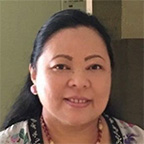
Elizabeth Aguiling-Pangalangan
Institute of Human Rights, Law Center University of the Philippines
Professor Elizabeth Aguiling-Pangalangan is a Full Professor at the University of the Philippines(UP) College of Law and is the Director of the UP Law Center Institute of Human Rights. She holds the Professorial Chair Holder, Roberto A. Sabido Professorial Chair in Law and Development at the UP College of Law as well as a Professorial Chair on Liberty and Prosperity from the Foundation of Liberty and Prosperity where she recently delivered a lectured entitled “When Law and Technology Unbundles Traditional Identities (Adoption and Surrogacy).
She earned her undergraduate and law degrees from UP and her LL.M. from Harvard Law School (HLS). She was appointed as Visiting Scholar and later, Research Fellow in the East Asia Legal Studies Program of the HLS. She attended The Hague Academy of International Law on a scholarship and subsequently lectured in its External Programme. She was likewise a Packard –Gates Fellow in University of California Sta. Cruz where she received the Gender Equity Award.
She was a visiting lecturer at Leiden University Law School, The Netherlands teaching in the Advanced Masterclass in International Human Rights Law and the Frontiers of Children’s Rights Summer School in 2019.
Prof. Aguiling-Pangalangan was Amicus curiae appointed by the Philippine Supreme Court in Aquino v. Aquino on the successional rights of non-marital children (2019) and was Counsel in Imbong v. Executive Secretary, representing Former Department of Health Secretaries in defense of the constitutionality of the Reproductive Health Law (2014). Her expertise was recognized by the Philippine Department of Social Welfare and Development which asked her to draft the Philippine State Periodic Report to the UN Committee on the Rights of the Child, 2017-2018 and engaged her services for the Assessment of Alternative Parental Care Programs in the Philippines that led to the enacted of a new law on Alternative Child care in 2022, and by the Department of Justice (DOJ) where she led the drafting of the DOJ handbook “Protecting Filipino Children from Abuse, Exploitation and Violence: A Comprehensive Program on Child Protection” in 2019..
She was s a member of the HCCH Experts’ Group on Parentage and Surrogacy for six years and was designated Philippine expert to HCCH working groups on various Hague child protection conventions and special commissions.
She is the President of the Philippine Society of International Law, member of the Executive Council of the Asian Society of International Law and Editorial Board member of the Philippine Yearbook of International Law. She has written extensively on private international law, children’s rights, reproductive rights, and Family law which have been published by the University of the Philippines, Cambridge University Press, Kluwer International and Routledge, among others.

Karina Ambartsoumian Clough
Executive Director of United Stateless
Karina Ambartsoumian-Clough, of Armenian and Ukrainian heritage, became stateless when the U.S.S.R. dissolved. Navigating the complexities of living stateless in the United States for 27 years, Karina has become a powerful advocate and community organizer, culminating in her role as a founding member and inaugural Executive Director of United Stateless (USL). Under her leadership, USL stands as the only U.S. organization solely dedicated to addressing statelessness, driven by her steadfast belief that those directly impacted should lead the way, bringing forward their lived expertise to guide change.
In the past five years, Karina has led USL in prioritizing community building, expanding its legal clinic, and tirelessly advocating for the enactment of the Stateless Protection Act. Her work has been instrumental in securing attention from the U.S. Department of Homeland Security, resulting in a historic policy initiative to protect stateless individuals in the United States. Recognized for her relentless dedication, Karina received the 2020 Women’s Refugee Commission Voices of Courage Award, the 2021 Women Leading the 175th Award from Pennsylvania State Representative Mary Isaacson, and the 2024 Women’s Community Catalyst Award from We Are All America.
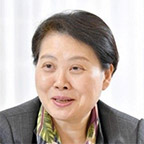
Mikiko Otani
CRC Committee member
Dr. Mikiko Otani is a member and former Chair of the UN Committee on the Rights of the Child (CRC). The areas of her focus include children and armed conflict, girl child, human trafficking, children’s access to justice and right to remedies. She has been particularly active in strengthening the work of the CRC concerning children and armed conflict. She is an international human rights lawyer and a practicing lawyer of family law in Japan since 1990, with a focus on women’s and children’s rights. She is a Commissioner and a Member of the Executive Committee of the International Commission of Jurists, a Vice-President of the Asian Society of International Law, and a former Chair of the Committee on International Human Rights of the Japan Federation of Bar Associations. She holds Doctor of Law (Public International Law) from Aoyamagakuin University in Japan, M.I.A. (Human Rights and Humanitarian Affairs) from Columbia University, School of International and Public Affairs in USA, LL.M. (Public International Law) from University of Tokyo in Japan, and B.A. in Law from Sophia University in Japan.
WEBINAR 3 | 18th February 2025
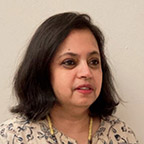
Bina Ramanand
Family Frontiers Malaysia (Moderator)
Bina Ramanand currently leads Family Frontiers, an organization that champions the rights of Malaysian binational families. With over 17 years of advocacy experience, Bina has been instrumental in advancing gender equality, particularly in securing the citizenship and identity rights of children born to Malaysian mothers. The work of Family Frontiers has led to significant governmental commitments towards law reforms, impacting countless Malaysian binational families.
Bina actively engages with national and international forums, UN agencies, and various coalitions to push for legal reforms and access to justice, focusing on marginalized groups such as migrant women and stateless populations. She has played a crucial role in advocating for overseas-born children of Malaysian women, seeking to ensure their rights to nationality and identity.
Bina is a member of the UNHCR Global Alliance Task force to end statelessness and is on the steering committee of the Global Campaign for Equal Nationality Rights and the steering committee of the Asia Pacific Statelessness and Dignified Citizenship Coalition.

Karin Heissler
UNICEF WCARO
Karin Heissler is the Regional Adviser for Child Protection in the UNICEF West and Central Africa Regional Office based in Dakar, Senegal. She has worked in the field of child protection with UNICEF in Ethiopia, New York Headquarters, Liberia, Italy (Innocenti –the Office of Research), India, Pakistan and Bangladesh. Karin has also worked with NGOs and research institutions related to childhood and human rights in the United Kingdom, India and Thailand. She has a DPhil in International Development.

Zoé Bertrand
Global Survivors Fund
Zoé Bertrand is a senior advocacy and policy officer for the Global Survivors Fund (GSF), with a focus on advocating for children affected by conflict-related sexual violence (CRSV). Part of her current work centres on ensuring access to legal identity for children born of CRSV. She previously worked for the Office of the United Nations Special Representative of the Secretary-General for Children and Armed Conflict (SRSG CAAC), the Permanent Mission of France to the United Nations, and the International Federation for Human Rights (FIDH). Zoé holds a degree in law for the University Panthéon Assas (France) and a MA in international crime and justice from the City University of New York (USA).
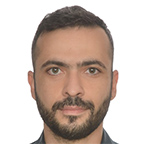
Georgios Kyriakos
METAdrasi, Family for Every Child member
I hold a Law degree from the University of Athens, along with a postgraduate diploma in Civil Law from the same institution and a Master’s Degree in Human Rights from the University of Manchester.
I have been a licensed attorney with the Athens Bar Association since 2013. My enduring interest in migration and asylum issues prompted me to begin working in the field of refugee matters in 2016, since when I have gained experience with various international and civil society organizations. Currently, I serve as a lawyer and legal advisor at METAdrasi, where I provide legal support to unaccompanied minors and engage in advocacy initiatives.

Laura Echeverri
UNHCR Colombia
Laura Echeverri Montes, Colombian, has worked in UNHCR Colombia for over 11 years.
Her professional career focuses on her work on Human Rights, mainly concerning the right to land for internally displaced persons. She has worked not only for UNHCR but also with public institutions such as the Land Restitution Unit and civil society organizations, like Cáritas.
Laura is a lawyer with a master’s degree in human rights. She speaks Spanish, English and French.
Amongst others, she is currently the focal point on statelessness and civil registration.
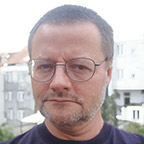
Benoit Van Keirsbilck
CRC Committee member
Benoit Van Keirsbilck is the Director of the Belgian section of Defence for Children – International (DCI). He is Chief Editor of the Journal of Children’s Law (Belgium) and member of the Advisory board of the UN Global Study on children deprived of liberty. He is a member of the Interdisciplinary Center for the Rights of the Child, which organises academic courses and develops research. He has been elected as a member of the UN Committee on the Rights of the Child (2021-2024 and 2025-2029).
WEBINAR 4 | 4th March 2025
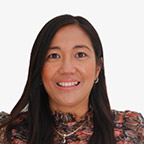
Mia Dambach
CHIP (Moderator)
Mia Dambach is a human rights advocate with 20 years’ experience of working on children’s rights, starting her career as a children’s lawyer in Australia. As the Executive Director she brings with her leadership, project management and research skills to ensure that children’s identity rights are better protected worldwide. She has provided technical support, mostly on behalf of UNICEF, through evaluation missions in over 20 countries focusing on alternative care, adoption, and surrogacy. With many years of further experience and a family background from Australia, the Philippines, and Switzerland, she understands the importance of children having access to their origins.
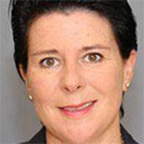
Patricia Carey
Special Advocate for Survivors
Patricia Carey served as the CEO of the Adoption Authority of Ireland from 2014 to 2022, leading the Authority’s work on the landmark Birth Information and Tracing Act. Prior to this role she held the position of Director of Services for St Vincent De Paul, and has also held various volunteer leadership roles, including Chairperson of Connect Counselling for Survivors of Institutional Abuse and a founding member of Outhouse resource centre for the LGBT+ community. As an adopted person born in a Mother and Baby home, Ms Carey brings a unique perspective and dedication to her work which she will also bring to the role of Special Advocate for Survivors.

Lynelle Long
InterCountry Adoptee Voices
Lynelle Long is a Vietnamese adoptee born in the early 70s, Founder of InterCountry Adoptee Voices (ICAV). ICA is one of the largest platforms worldwide to bring together the leaders of intercountry adoptee led groups around the globe. Her network is a critical thinking space that advocates for the needs and rights of intercountry adoptees. She has been a consultant to central authorities in intercountry adoption, is an author and contributor to books on intercountry adoption, initiates and coordinates meetings with adult intercountry adoptees and government authorities, is an Observer in The Hague Working Group on Addressing & Preventing Illicit Practices in Adoption, guest speaker at training sessions and conferences for various Central Authorities and post adoption organisations worldwide.

Arthur Kermalvezen
Origines Association
Conceived through gamete donation, which he has always known.
For nearly 20 years, he has been actively campaigning for recognition of the right of every person to know their origins.
With Audrey Kermalvezen-Fournis, he co-founded the ORIGINES association, which he chairs.
Author of the book ‘Né de spermatozoïde inconnu’ (Born from an unknown sperm) (foreword by Serge Tisseron), published by Presse de la Renaissance in 2008 and reissued by J’ai Lu in 2010.
Since 2006, he has been a spokesperson for people conceived by gamete donation.
In September 2017, he became the first French person to trace the donor who conceived him using a recreational DNA test.
Co-author of the book ‘Le Fils’ with journalist Charlotte Rotman, published by Éditions L’Iconoclaste in February 2021.

Audrey Kermalvezen
Origines Association
Audrey trained as a lawyer and specialised in bioethics law before discovering that she owed her conception to gamete donation, which she learned at the age of 29. She has been an active campaigner for the recognition of every person’s right to know their origins for some fifteen years. She co-founded the ORIGINES association with Arthur Kelmavezen-Fournis. Author of an essay-document ‘Mes origines : une affaire d’État’, under the name Audrey Kermalvezen, foreword by Professor Israël Nisand, published by Max Milo, 2014.
Audrey Kermalvezen was the first person conceived by gamete donation to take her case to the French courts in 2010, seeking access to her personal origins. After being rejected by the Council of State in 2015, she appealed to the European Court of Human Rights in 2016.
Audrey’s application was rejected by 4 votes to 3 in the Gauvin-Fournis v France judgment of 7 September 2023. Her application to refer the case back to the Grand Chamber was rejected.
In the Bioethics Act of 2 August 2021, the French legislature enshrined the right of persons born of gamete donation to know the identity of the donor, subject to a number of conditions.
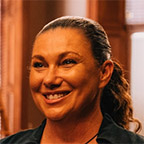
Natalie Lewis
Queensland Commissioner for Children
Natalie is fiercely committed to progressing a transformational reform agenda to strengthen Queensland’s focus on children’s rights. Her passion for children’s rights is inspired by the experiences of children and young people disadvantaged by the systems designed to protect them, especially those in statutory child and youth justice systems.
Natalie has dedicated her career to improving life outcomes for First Nations Peoples across Australia and is deeply committed to addressing the systemic and structural issues that disproportionately affect Aboriginal and Torres Strait Islander children and families. She has led significant national reform across Aboriginal and Torres Strait Islander child protection and family services sectors, playing an instrumental role in the implementation of the Aboriginal and Torres Strait Islander Child Placement Principle in Australian child protection legislation. She is a strong advocate for protecting the right of First Nations People to exercise self-determination and to remain meaningfully connected to kin, culture and Country.
Natalie has held senior executive roles in the Queensland Government, the advocacy sector and been appointed to numerous national boards and councils.
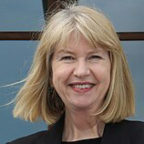
Ann Skelton
CRC Committee Chairperson
Ann Skelton is an international expert on children’s rights. She is a Law Professor at the University of Pretoria, where she holds the UNESCO Chair in Education Law, and is also appointed part time at the University of Leiden where she holds the Chair in Children’s Rights in a Sustainable World. She also teaches international children’s rights at the Universities of Oxford and Strathclyde. She has worked as a children’s rights lawyer in South Africa for 30 years where she played a leading role in child law reform. She pioneered strategic litigation on children’s rights from the Centre for Child Law (where she was Director from 2008 to 2018) and appeared as legal counsel arguing many landmark cases in the South African courts, including cases enforcing the right to education. Her global influence has been recognised through several awards, including the Honorary Worlds Children’s Prize and the Juvenile Justice Without Borders Award. She has chaired several international drafting bodies, including the Global Study on Children Deprived of their Liberty, and the expert committee that drafted the Abidjan Principles on state’s obligations regarding public education and the regulation of private of education.
- 12 September 2024


